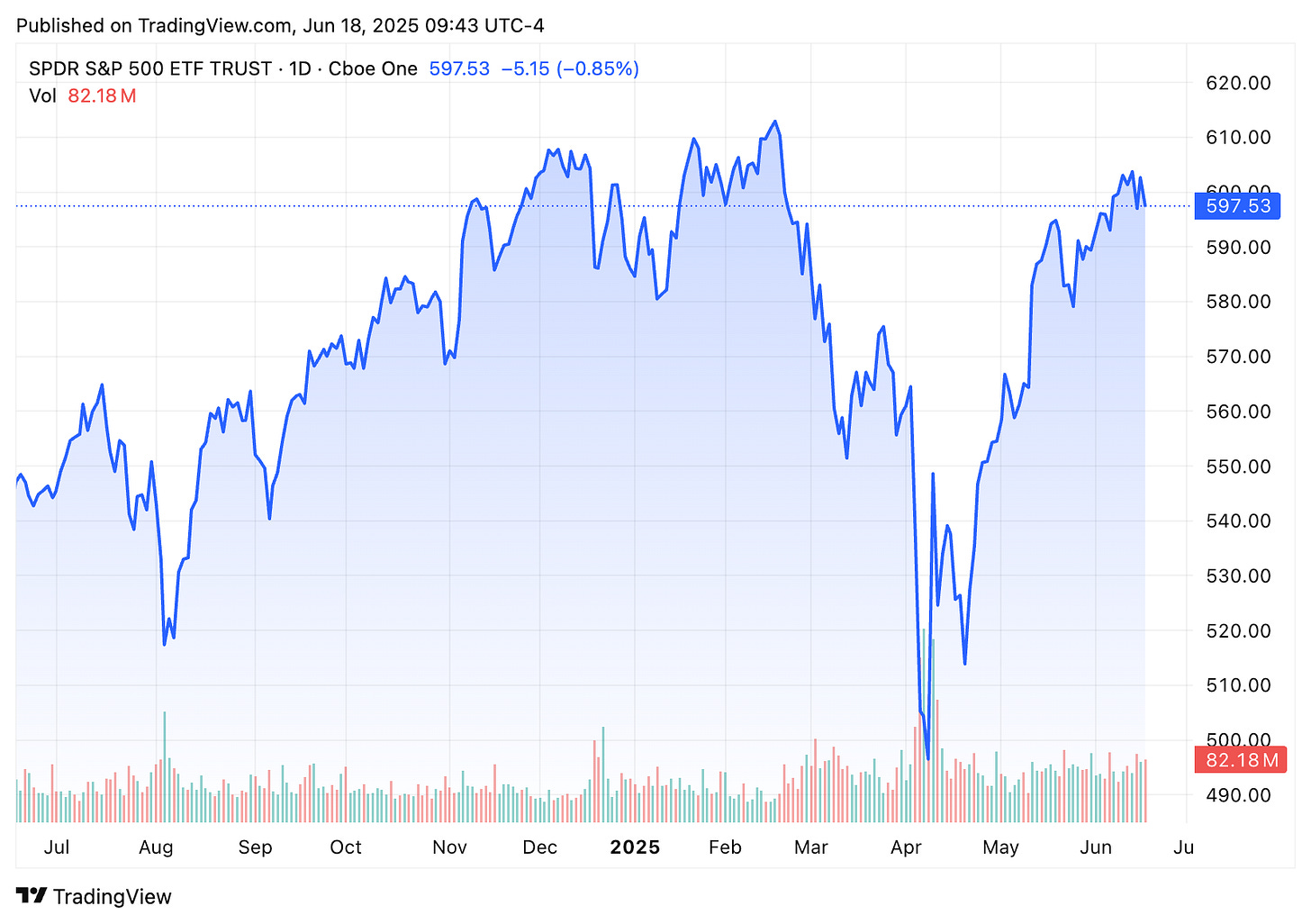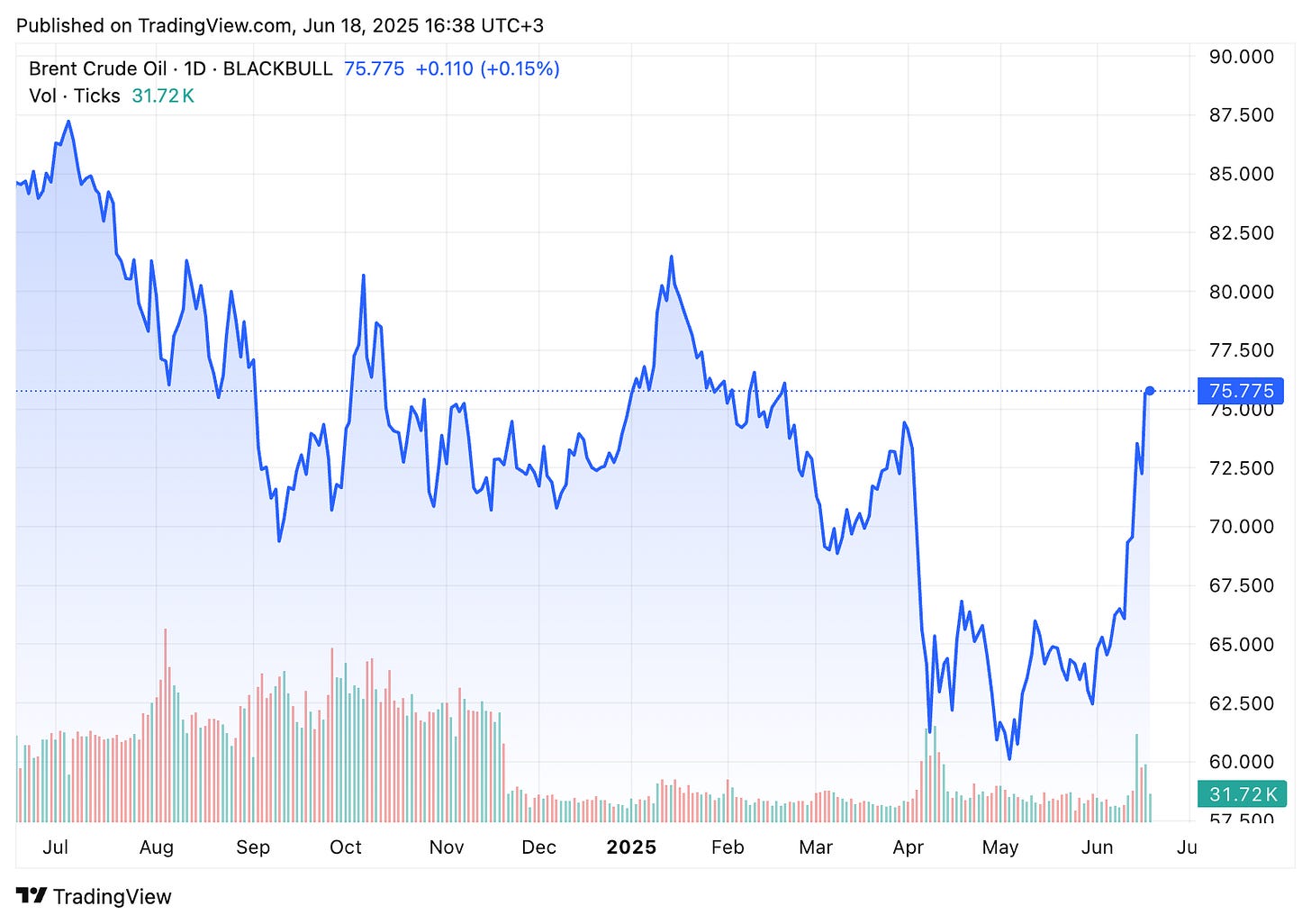So much for the "Axis of Evil"
It's an unpredictable war in a volatile region, but markets are probably right that the global consequences of Israel's attacks on Iran look contained.

The next time someone tries to scare you with talk of a menacing coalition of enemies lined up against Western institutions, global markets and the American Way, ask them to explain what’s going on this week. When Israel can control the skies over Tehran in just a few days with stocks edging higher and oil still well below last year’s highs, the looming confrontation between West and East, democracies and tyrannies or “good guys” and “bad guys” looks like a dud.
The so-called Axis of Evil was first coined by George W. Bush in 2002 and included Iraq, Iran and North Korea. Politicians and strategists since then have dropped Iraq following the U.S. invasion and quietly added Russia and China to the mix. More careful analysts have alternatively preferred the label “axis of upheaval.”
But if there was any doubt before this week, it’s now clear that these countries are more an affinity group than any blood oath brotherhood. If there’s one thing that binds them, it’s hostility to U.S. power. If there’s anything else they have in common, it’s hard to detect.
In fact, for all the internal angst and self-doubt, the broad group of (mostly) liberal, (mostly) free-market, (mostly) democracies against mostly corrupt tyrannies has been gaining ground without realizing it.

President Trump now faces a momentous decision about whether to join Israel’s attacks on Iran, even if it’s limited to destroying nuclear facilities at Fordow with ‘bunker busting’ bombs. This might raise risks of disrupting oil flows through the Straits of Hormuz, draw the ire of Saudi Arabia and Gulf states and risk a broader regional conflict.
What it won’t do, however, is raise the odds of China, Russia or even North Korea entering the conflict on Iran’s side.

The People’s Liberation Army has grown rapidly over the past two decades, but still deploys mainly around China itself. Beijing would love to weaken America’s support for Taiwan and drive the U.S. Navy out of the South China Sea. But as much as Chinese leaders have courted Iran’s leaders and denounced Israel’s attacks, they seem more than happy to allow that very same U.S. Navy to protect oil shipments heading for China.
Late last year, Vladimir Putin hosted a BRICS summit and welcomed Iran as one of its newest members. Barely six months ago, Vladimir Putin signed a 20-year Comprehensive Strategic Partnership with Masoud Pezeshkian, Iran’s president, in Moscow. What does that get Iran in its hour of need? Very little beyond a call from Putin to Trump with an offer to help mediate the conflict.
As for North Korea, the only headlines this week are of accelerated munitions production in the face of rising global tensions. Pyongyang had sent a senior diplomatic delegation to Tehran in April, but this was the first diplomatic engagement between the two countries since the COVID-19 pandemic.
None of this is to say the world isn’t as full of dangers as you might have thought, even before Israel’s attacks over the last week. China remains America’s chief global rival, and Russia is always angling for ways to cause trouble. But Beijing’s support of Russia’s war has limits, including anything that cuts off access to Western banking. Similarly, Russia’s backing of Iran is more bark than bite.
However the conflict between Iran and Israel evolves, the outcome will be determined by Tehran’s own decisions, not by any collusion with Moscow, Beijing or Pyongyang.


